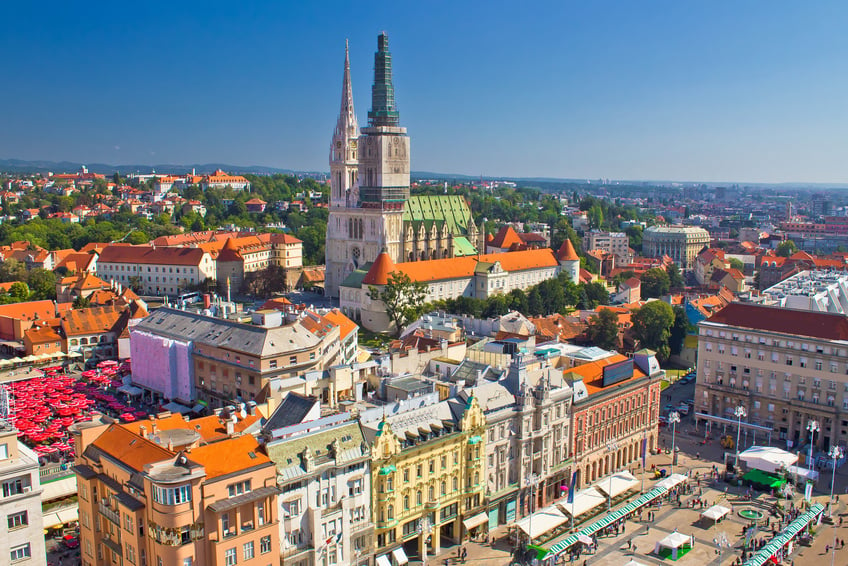Only on July 30, 2014, the EU had significantly intensified its sanctions against Russia in reaction to the developments in the Ukraine. As tensions in the Ukraine continue to increase, less than six weeks later the EU again tightened its measures against Russia as well as against leading personnel in Crimea and in Eastern Ukraine on September 12, 2014.
The measures currently in force provide for restrictions for transactions in Russia, in Crimea and with business partners in Russia and in the Ukraine. In the following, we do not only discuss the new, tighter measures, but explain the whole body of the EU Sanctions currently in force against Russia. 1. What do the EU Sanctions prohibit? a. Restrictions for certain financial instruments and for loans Already on July 30, the EU adopted severe restrictions for long-term financing instruments issued by certain banks. It is prohibited to purchase, sell, provide brokering or assistance in relation to transferable securities and money-market instruments with a maturity exceeding 90 days, if these have been issued by certain banks after August 1, 2014. This prohibition applies to securities and instruments issued by one of the following five banks: Sberbank, VTB Bank, Gazprombank, Vnesheconombank (VEB), Rosselkhozbank or by a company that is majority-owned by one of these banks or by a person who acts on behalf of any of these banks. These restrictions have been significantly tightened on September 12, 2014, because these restrictions now apply to transferable securities and money-market instruments with a maturity exceeding 30 days if these have been issued after September 12, 2014, and not only by one of the banks mentioned above, but also by one of the following companies: OPK Oboronprom, United Aircraft Corporation, Uralvagonzavod, Rosneft, Transneft or Gazprom Neft (or by a company that is majority-owned by one of these banks or companies or by a person who acts on behalf of any of these banks or companies). Finally, on September 12, 2014, the EU has adopted a prohibition to grant new loans or credit to the banks and companies listed above with a maturity exceeding 30 days. The sanctions contain an express exemption from this prohibition for loans and credit for non-prohibited imports and exports of goods and for non-financial services between the EU and Russia as well as loans to provide emergency funding to a subsidiary of one of these banks or companies in the EU. Despite these restrictions, these banks and companies are not subject to financial sanctions or other prohibitions. It is not prohibited to engage in transactions with these banks and companies or to transfer funds to or from one of these banks or to open a bank account at one of these banks. In addition – different from comparable rules of the U.S. – these restrictions only apply to transferable securities and money-market instruments. The restrictions only impact a small portion of trade credits; thus, it is still generally possible to grant payment terms exceeding 30 days to one of the companies concerned. b. “Financial” Sanctions Already since March 2014, the EU has adopted “financial” sanctions against a number of individuals, groups and companies (so-called “Designated Parties”). All funds and assets of Designated Parties must be frozen, and no funds or economic resources may be provided to Designated Parties. The term financial sanctions is misleading, because any business transactions with Designated Parties are prohibited (except for a few unimportant exemptions). In addition, no funds or economic resources may be provided for the benefit of Designated Parties. Traditionally, this prohibition has been interpreted to mean that transactions were also prohibited with any company that was majority-owned or otherwise controlled by a Designated Party, even if the company itself was not listed. Since 2013, the German Government has, based on a common Guideline issued by the EU Council, interpreted this prohibition less strictly. Thus, in Germany, it is no longer generally prohibited to enter into business transactions with companies that are majority-owned or controlled by Designated Parties, provided that it can be ensured that the items delivered to the company in question are not passed on to a Designated Party. This practice by German authorities may become important in the future, because the chairman of the Rostec Conglomerate, Sergey Chemezov, has been included in the list of Designated Parties, but no companies of the Rostec Conglomerate have been Designated. To date, the list includes a number of politicians and members of the self-proclaimed governments of Crimea, Donezk and Luhansk. In addition, the list comprises e number of companies that have been nationalized by the current Government of Crimea. Even after the new sanctions of September 2014, the list of Designated Parties includes only one bank, the Russian National Commercial Bank (RNCB). c. Export prohibitions and restrictions Already since August 1, 2014, Russia is subject to an arms embargo, and military items may no longer be supplied to Russia. Technical assistance (that is, certain support services), financing and brokerage services for military items are also prohibited. However, these prohibitions do not apply to contracts concluded before August 1, 2014; yet, licenses are required for respective exports. As a consequence of the arms embargo, it is prohibited to export any item to Russia if the exporter knows that the item is intended for a military end-use, that is, in particular, the manufacturing of military items. In addition, it is prohibited to sell, supply or export dual-use items to Russia, if the end-user is the Russian military or if the items may be intended for another military end-user or for a military use. This prohibition was broadened on September 12: Dual use items may no longer be supplied to nine defense companies listed in the EU Sanctions. However, licenses may be granted for supplies which are made under contracts or agreements concluded before September 12, 2014. Finally, the sale, supply, transfer and the export of technologies suited to the oil industry for use in deep water oil exploration and production, Arctic oil exploration and production or shale oil projects in Russia have been prohibited. Based on grandfathering rules in the EU Sanctions, export licenses for these items can still be issued if the respective contract has been concluded before August 1, 2014. In order to enforce this export prohibition, the EU Sanctions contain a list of items which are suitable, in principle, for such projects. The export of these items to Russia always requires a license, even if these items are not suitable or not designated for such project. Since September 12, 2014, in addition, drilling, well testing, logging and completion services as well as the supply of specialized floating vessels for the projects of the oil industry listed above are prohibited. Again, an exemption to this prohibition applies if these services are provided under agreements which have been concluded before September 12, 2014. d. Further restrictions for the Crimea Region and Sevastopol Additional export restrictions apply with respect to the Crimea Region and Sevastopol. It is prohibited to sell, supply, transfer or export key equipment or technology which is related to the creation or development of infrastructure in the following sectors: transport, telecommunications, energy and exploitation of oil, gas and mineral resources. It is also prohibited to provide respective ancillary services, such as brokering or financing, for the export of such equipment and technology to the Crimea Region. As of July 31, 2014, it is prohibited to provide credits or loans for certain infrastructure projects in the Crimea Region or to acquire or extend a participation in companies which are involved in such infrastructure projects. This prohibition applies to infrastructure in the areas of transport, telecommunications or energy. Identical prohibitions apply with respect to credits or loans to as well as investments in companies which are active in the exploitation of oil, gas or mineral resources in the Crimea Region or in Sevastopol. Finally, with effect already since June 25, 2014, the EU has effectively prohibited the import of any goods originating in the Crimea Region or in Sevastopol. According to an exemption, the prohibition does not apply to contracts concluded before June 25, 2014; however, this exemption will expire on September 25, 2014. In addition, the prohibition does not apply if Ukrainian authorities have examined the goods in question in advance. 2. Do the EU Sanctions apply to me or to my company? The EU Sanctions apply in each of the following situations:
- within the territory of all EU Member States;
- on board any aircraft or any vessel under the jurisdiction of an EU Member State;
- to any person who is a national of an EU Member State;
-
to any legal person which is incorporated or constituted under the law of a Member State;
- to any legal person in respect of any business done in whole or in part within the EU.
It is often overlooked that the EU Sanctions also apply to any person who is not an EU national for as long as he or she is within the EU (or onboard an airplane of an EU airline). Also, the EU Sanctions apply to EU nationals wherever they are. Thus, managers or employees who have the nationality of an EU Member State must comply with the EU Sanctions even while they are, for example, within Russia or within the Ukraine. On the other hand, the EU Sanctions do not apply to companies and persons who are not EU nationals as long as they are outside of the EU. Thus, the sanctions do not apply, for example, to transactions between Russian companies that are conducted outside of the EU and where no EU nationals are involved.



